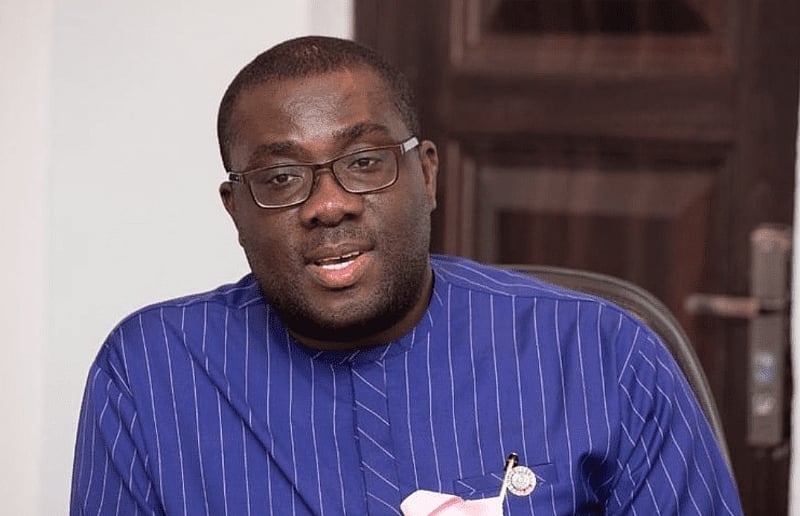Sammi Awuku, Member of Parliament for Akuapem North, has launched a scathing critique of the National Democratic Congress (NDC), accusing the party of engaging in a campaign of economic misinformation leading up to the 2024 general elections. He contends that the latest economic data, particularly following the International Monetary Fund’s (IMF) fourth review of Ghana’s economic performance, directly contradicts the NDC’s narrative of economic collapse. Awuku highlighted the strong growth figures and the IMF’s continued support as evidence of a robust economic recovery, effectively discrediting the NDC’s claims of an economy in distress and a breached IMF program. He argues that the data paints a vastly different picture, one that reveals a resilient economy on the path to sustained growth, a narrative that is decidedly inconvenient for the NDC’s political rhetoric.
The centerpiece of Awuku’s argument rests on the IMF’s assessment of Ghana’s economic performance. The IMF report indicated a 5.7% growth rate in 2024, significantly exceeding the initial projection of 4%. Awuku characterized this outcome not merely as recovery, but as a testament to the economy’s inherent resilience. This robust growth, he asserts, is a clear indicator of the economy’s ability to withstand challenges and maintain a positive trajectory. He underscored the contributions of key sectors such as mining and construction, coupled with a surge in gold exports and a consistent inflow of remittances, as crucial factors in stabilizing Ghana’s external accounts and boosting its international reserves to $8.9 billion, the highest level in recent years.
Awuku attributes this economic success to the “tough strategic decisions” implemented by the previous New Patriotic Party (NPP) government. He credited the NPP’s disciplined approach to reforms and fiscal management for laying the foundation for the current economic resurgence. Despite navigating global economic headwinds, he emphasized, the NPP maintained its commitment to sound economic policies, ultimately paving the way for the positive outcomes reflected in the IMF’s assessment and the subsequent Staff Level Agreement, which signals the IMF’s continued support for Ghana’s economic program. This, he argued, is a direct result of the NPP’s prudent management and strategic foresight.
Awuku’s statement serves as a direct rebuttal to the NDC’s allegations of economic mismanagement. He accused the NDC of propagating “tales of crisis and mismanagement,” while contrasting their narrative with what he presents as the undeniable evidence of positive economic performance. He highlighted the IMF’s positive assessment and the strong growth figures as concrete proof of the NPP’s effective economic stewardship. This, he contends, exposes the hollowness of the NDC’s criticisms and reveals their claims as politically motivated attempts to undermine the NPP’s achievements and create a false narrative of economic failure.
The ongoing exchange between the NPP and the NDC underscores the intensifying political climate in the lead-up to the next general election. Awuku’s statement, a forceful defense of the NPP’s economic record, is a clear attempt to shape public perception and counter the NDC’s narrative. He confidently asserts that the NPP not only laid the groundwork for Ghana’s economic comeback but is also poised to return to power in 2028, further strengthening the country’s economic trajectory. This declaration reflects the NPP’s confidence in its economic policies and its belief that the electorate recognizes the party’s competence in managing the nation’s finances.
The IMF’s continued support, formalized through the Staff Level Agreement, is expected to further bolster Ghana’s economic stability and unlock additional financial assistance and reforms under the existing extended credit facility program. This continued partnership with the IMF, Awuku argues, is a testament to the soundness of the economic strategies implemented by the NPP government and reinforces their narrative of effective economic management. It also signals international confidence in Ghana’s economic prospects and strengthens the country’s position to attract further investment and support for its development agenda. This, in turn, is expected to contribute to sustained economic growth and improved living standards for the people of Ghana.














